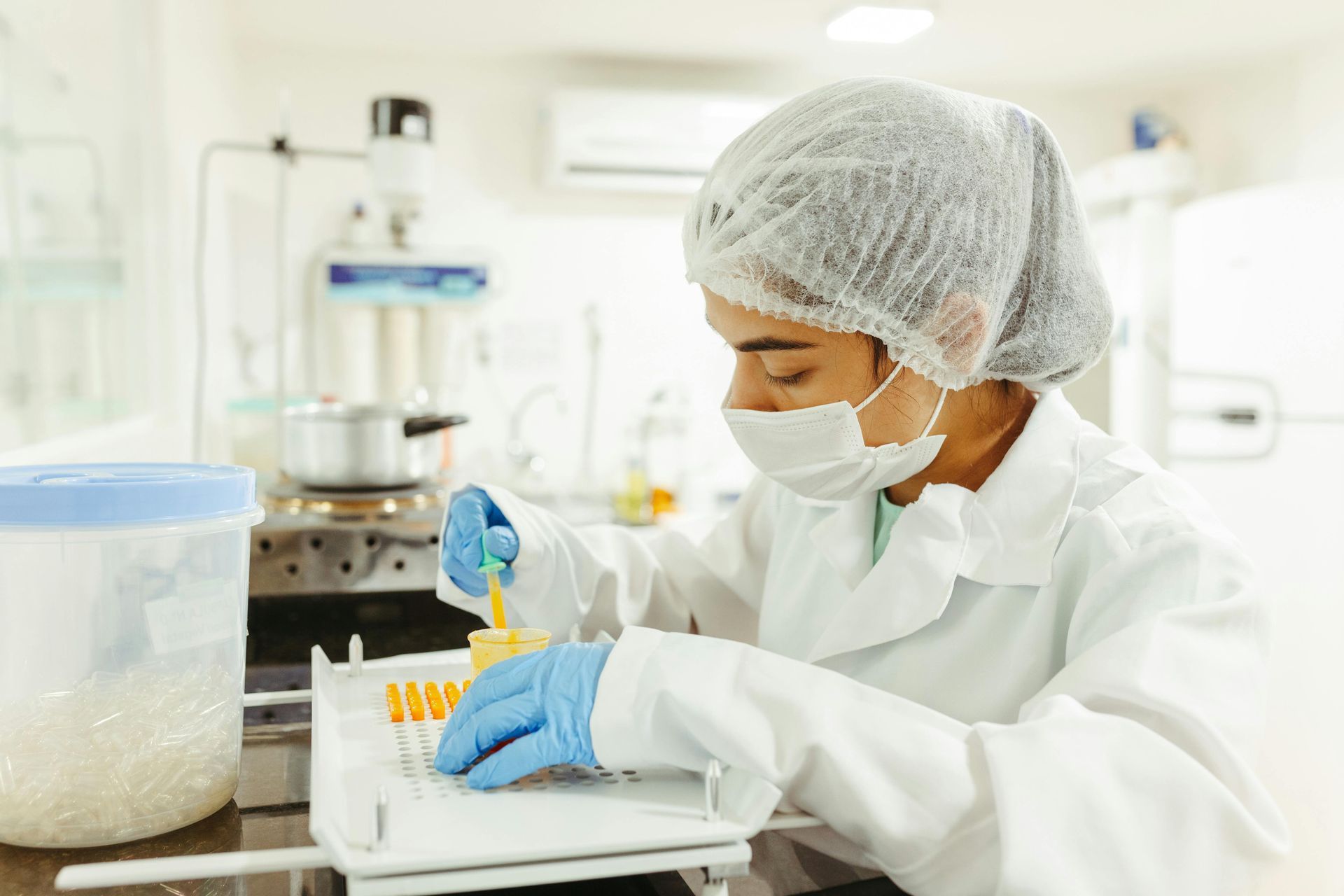The Race Toward a COVID-19 Vaccine: Three Months Later
As of July 2020, more than 11 million cases of COVID-19 have been reported worldwide, with the number of deaths at half a million and counting.
Since the start of the month, the U.S. has confirmed 50,000 cases a day for three straight days. But those numbers are optimistic—former FDA Commissioner Dr. Scott Gottlieb warned that actual spikes might have been in the 400,000 to 500,000 range due to limited testing capacity.
Testing at scale has been an ongoing issue in the U.S. since the beginning of the outbreak. But where are we on the vaccine front?
FDA Implements New Threshold
The FDA has released a strict set of requirements for prospective COVID-19 vaccines. Among these is proof that the vaccine candidate is at least 50% more effective than a placebo.
This threshold is comparable to the performance of the flu vaccine over the last decade, which has fluctuated between 19% and 60% efficacy, according to the CDC. In the wake of the announcement, concerns have been raised as to whether 50% efficacy is enough to stop the spread of COVID-19—which is more easily transmitted and has a higher death rate than the flu.
Major Players: What Progress Has Been Made?
CureVac
CureVac has joined forces with Tesla to manufacture mRNA vaccines using mobile molecular printers. Tesla CEO Elon Musk calls them “RNA microfactories,” and plans on shipping to remote locations in need of on-site vaccine production.
Pfizer Inc. and BioNTech
A 45-patient trial has shown promising results for one of Pfizer and BioNTech’s four mRNA vaccine candidates. Doses given to COVID-19 patients elevated antibody levels by up to 2.8 times. Phase 3 trials could begin as early as July.
Moderna
The NIH claims partial ownership of Modern’s frontrunner COVID-19 vaccine. Why does this matter? Patent rights would allow the federal government to lower costs and widen distribution without Moderna’s consent.
Major Players: Recent Updates on COVID-19 Treatments
Gilead Sciences
The Trump administration has been widely criticized for setting aside Gilead Sciences’ entire Remdesivir supply for the month of July—plus the majority of its stock for the next two months, amounting to more than 500,000 doses.
Eusa Pharma
Eusa Pharma won FDA approval for phase 3 trial testing of Sylvant, an IL-6 inhibitor that targets COVID-induced lung inflammation. This is the last hurdle for Eusa Pharma to overcome before Sylvant reaches hospitals.
Key Takeaways
For pharmaceutical organizations everywhere, staying updated is more important than ever. But watching the news is not enough. In the midst of a global public health emergency, life sciences training must become a top priority.
Now is the time to invest in new skills for your organization. Get your teams up to speed with professional training and certification courses from the Center for Professional Innovation and Education (CfPIE).
Are you interested in keeping your organization COVID-ready? Get in touch with a member of the CfPIE team by calling 1-610-648-7550 or emailing [email protected].
Blog Categories
Stay Informed
Have Questions?
You will be able to find answers to most frequently asked questions here
Since 2001 CfPIE has
Check Out Our Life Science Training Courses.
Need help finding the right life sciences training courses? We can help you make the right choice based on your company's needs.
- AMDE, PK/TK & Drug Metabolism in Drug Discovery and Development
- Advanced Topics in Biostatistics for Non-Statisticians
- Analytical Chemistry Principles for Pharmaceutical Scientists
- Analytical Method Validation for Biologics, Biopharmaceuticals and Other Therapeutic Products
- Aseptic Processing in the Manufacture of Biotech and Pharmaceutical Products
- Auditing and Qualifying Suppliers and Vendors
- Best Practices for an Effective Cleaning Validation Program
- Biostatistics for Non-Statisticians
- CMC Regulatory Compliance Strategy for Cell & Gene Therapy Medicines
- CMC Regulatory Compliance Strategy for Recombinant Proteins, Monoclonal Antibodies, & Biosimilars
- Change Control - GMP Requirements and FDA Enforcement
- Cleanroom Fundamentals - Regulation, Science, Design, Practice, Operation & Management
- Clinical Document Management: A Trial-by-Trial Compliance Approach
- Clinical Trial Project Management, Phase 1-4 Best Practices
- Comprehensive Overview of FDA Regulatory Compliance for Drug and Biotech Products
- Computer System Validation
- CRO, CDMO and Non-Clinical Vendor Management Fundamentals
- Development and Validation of Bioanalytical Assays for Biologics: Quantification (PK) and Immunogenicity Assays
- Effective Document Management for Pharma, Biotech & Medical Device
- Effective Internal and External Quality Assurance Auditing for FDA Regulated Industries
- Ethics in Research - Values for Responsible Conduct of Research
- European Regulatory Procedures - EMA & National Requirements
- FDA Inspections - What Regulators Expect and How to Prepare
- GCP Audits - Best Practices for Ensuring Compliance & Detecting Fraud and Misconduct in Clinical Trials
- GMP Training for the QC Laboratory
- Good Clinical Practices (GCP) & Risk Based Monitoring - Understanding and Implementing Current Global Requirements
- Good Laboratory Practice (GLP) for Nonclinical Laboratory Studies
- Good Manufacturing Practices Training | GMP Course
- Human Error Prevention (HEP) - Risk Factors and Strategies
- Implementing and FDA Compliant Stability Program
- Integration of Risk Management Principles and Activities into the Pharmaceutical Quality System
- Intro to Medical Device Submission - 510(s)s, PMAs & Exemptions
- Introduction to Medical Combination Products
- Introduction to Statistical Analysis of Laboratory Data
- Introduction to Vaccines - CMC Regulatory and Quality Aspects
- Laboratory Equipment Validation and Qualification
- Lyophilization Technology - Application of Scientific Principles
- Marketing & Advertising of Pharmaceutical & Medical Devices
- Medical Device Process Validation Training for Professionals
- Medical Devices: Developing Effective Post Market Surveillance and Compliant Handling Systems
- Molecular Biology Techniques - Applications in the Biotechnology and Pharmaceutical Industries
- OTC Drug and Personal Care Product GMP & FDA Regulation
- Oncology Drug Development Course - A Comprehensive Overview
- Overview of FDA Regulatory Compliance for Medical Devices
- Overview of the New EU Medical Devices Regulations: MDR, IVDR, CE Mark and Compliance, QMS Fundamentals
- Pharmaceutical Root Cause Analysis of Failures & Deviations - Developing an Effective CAPA Strategy
- Preparation of FDA Submissions and Communicating with the FDA
- Preparing the CMC Section for NDAs/INDs/CTDs
- Process Validation for Drugs and Biologics
- QbD - Product & Process Optimization using Design of Experiments
- Quality Assurance/Quality Control for Biologics and Biopharmaceuticals
- RNA Biotechnology - An Introductory Course
- Specifications for APIs & Pharmaceutical Drug Products
- Technical Writing for Pharma, Biotech and Med Devices
- The Drug Development Process from Concept to Market
- US Medical Device & Quality Systems Regulations - Design Controls & Validation
- Writing Effective SOP and Other Process Documents
ABOUT US
The Center for Professional Innovation and Education (CfPIE) provides technical training for Pharmaceutical, Biotech, Medical Device and Skin/Cosmetics professionals. CfPIE offers more than 350 class sessions annually across 80 course titles in multiple formats, such as classroom, on-site, and certification programs.
USEFUL LINKS
STAY INFORMED
Your privacy and trust are important to us. We collect your information only for operational and advisory purposes. We do not and will not sell your private information to a 3rd party. By agreeing to this policy, you are giving us permission to contact you about our services and courses.
All Rights Reserved | CfPIE Inc. | Our courses and materials are copyrighted by CfPIE, Inc. and may not be used or reproduced without the written permission of CfPIE, Inc. management. | In partnership with CCC


